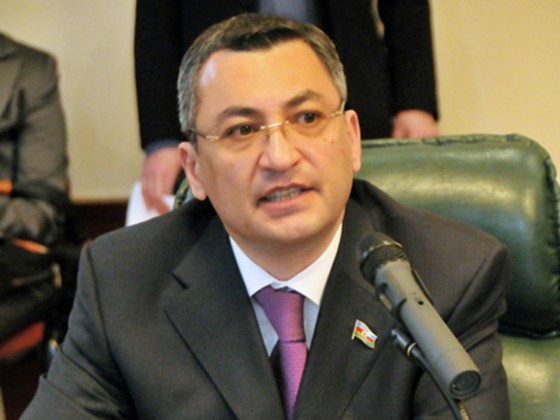
When Azerbaijan tries to solve the Nagorno-Karabakh issue peacefully within the territorial integrity, Armenia always resorts to provocations, Rovshan Rzayev, Azerbaijani MP, member of the board of the "Azerbaijani community of Nagorno-Karabakh region of Azerbaijan" public association, told reporters April 2.
Rzayev was expressing his attitude to the recent ceasefire violation by the Armenian forces.
He said that despite the talks are underway as part of the OSCE Minsk Group, the Armenian side does not comply with the ceasefire regime.
"The conflict settlement is delayed as a result of the Armenian policy of occupation and aggression,” he said. “Therefore, these attacks must be immediately prevented. The OSCE Minsk Group must intensify its activity.”
“The peace talks must be continued,” he said. “International organizations must express their attitude to this issue. The ceasefire regime must be restored. Otherwise, the conflict can escalate.
The counter-attack was made following provocations of the Armenian armed forces on the morning of April 2, which resulted in deaths and injuries of civilians.
Six Armenian tanks, 15 gun mounts and reinforced engineering structures have been destroyed and more than 100 servicemen of the Armenian armed forces were wounded and killed during the fights, the ministry said.
Twelve servicemen of the Azerbaijani armed forces heroically died, one Mi-24 helicopter was shot down and one tank damaged by a mine, according to the ministry.
The conflict between the two South Caucasus countries began in 1988 when Armenia made territorial claims against Azerbaijan. As a result of the ensuing war, in 1992 Armenian armed forces occupied 20 percent of Azerbaijan, including the Nagorno-Karabakh region and seven surrounding districts.
The two countries signed a ceasefire agreement in 1994. The co-chairs of the OSCE Minsk Group, Russia, France and the US are currently holding peace negotiations.
Armenia has not yet implemented the UN Security Council’s four resolutions on withdrawal of its armed forces from the Nagorno-Karabakh and the surrounding districts.
Trend
